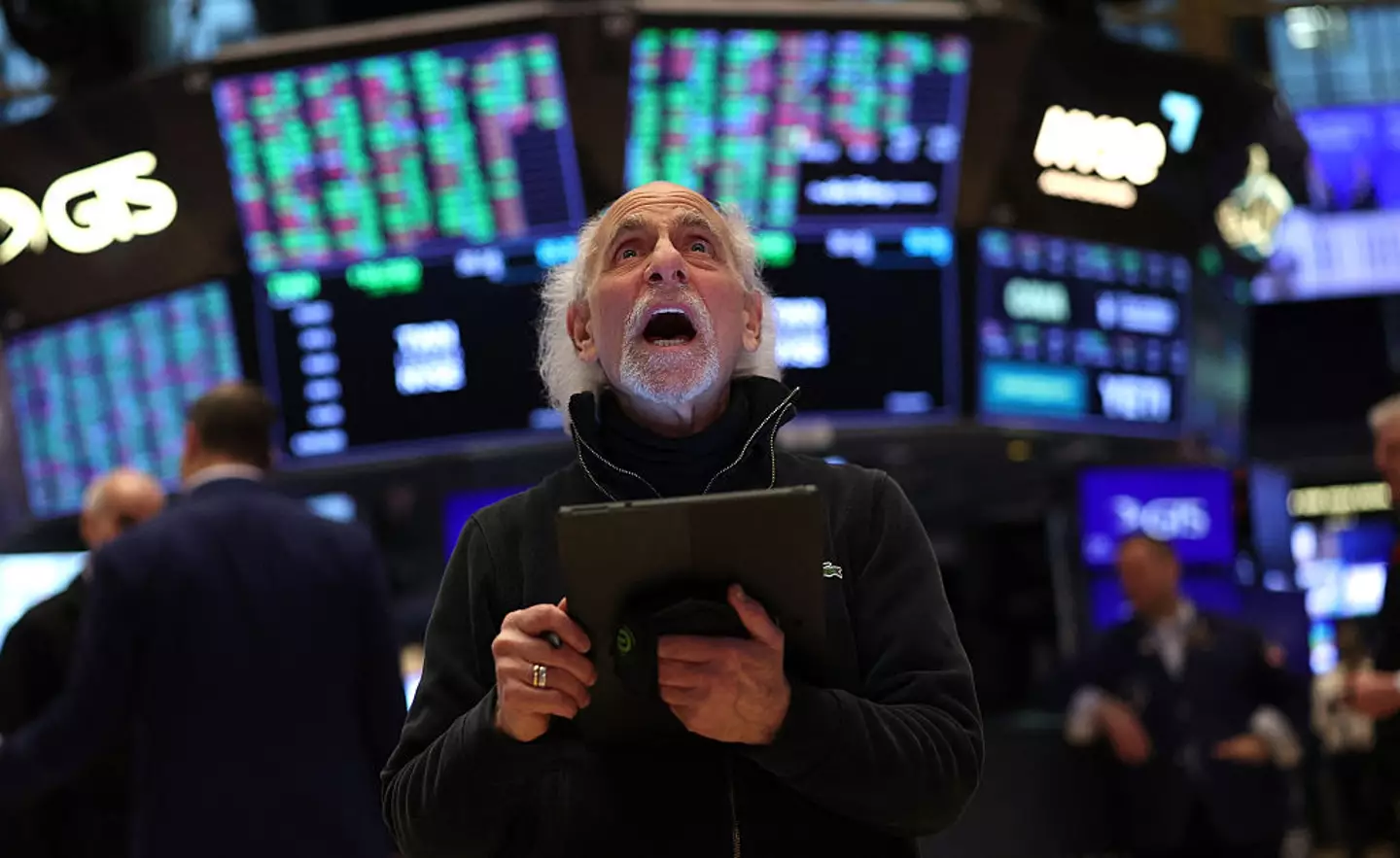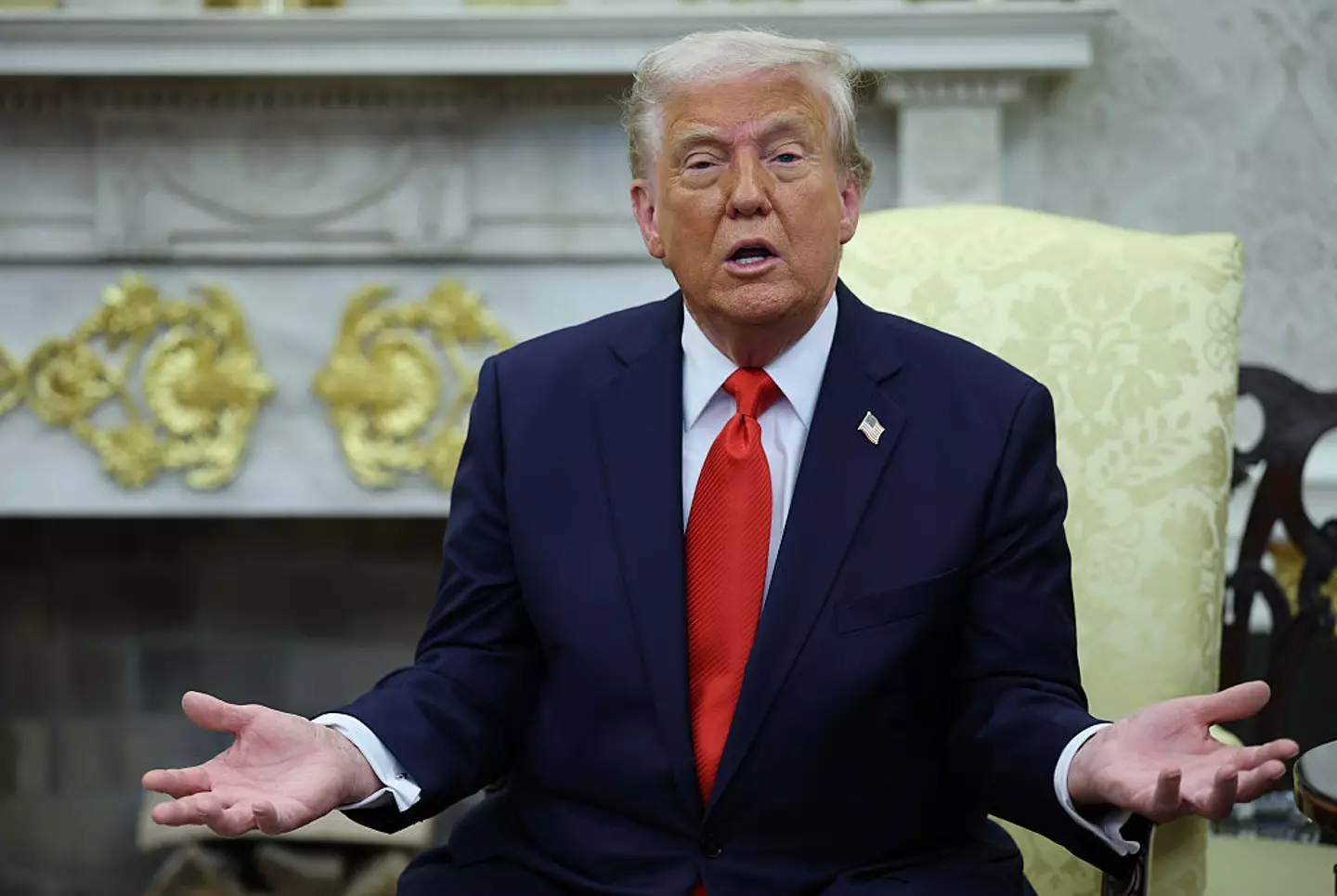US President Donald Trump’s continued trade war with China has seen the US stock markets suffer a major blow.
As a result of the tensions between Chinese President Xi Jinping and Trump, new restrictions introduced by the US on exports to the East Asian country is set to cost consumers billions of dollars.
The 78-year-old Republican has placed tighter restrictions on a policy created by his predecessor, 46th US President Joe Biden, which sees American computer chip companies limited in what they can sell to businesses in China.
The aim is to slow the communist country in its ambitions to develop artificial intelligence both for military and commercial purposes.
Nvidia is one of the US’ leading chipmaker’s, and yesterday (April 16) saw its stocks fall as low as 10 percent, before rising to just a 6.87 percent decline.

Trader Peter Michael Tuchman reacts as he works on the floor of the New York Stock Exchange at the closing bell (TIMOTHY A. CLARY/AFP via Getty Images)
It came after the company announced that it is no longer free to do business with Chinese companies on its own accord when selling its popular H20 chip – which was specifically designed for its Chinese audience.
That was because the US government had already banned the sale of its most powerful computing chip, the H100 AI chip, to China.
Instead, Nvidia will now need a license from Washington DC if it wishes to sell H20 chips to China.
On Tuesday, the tech company claimed the decision will mean the business will take a $5.5 billion hit.
Meanwhile, fellow chipmaking company AMD also saw its stocks nosedive by 7.35 percent, with the Trump administration also ordering that the company must also gain a license to sell its strongest chip.
It comes as China announced just days ago that it was raising tariffs imposed on the US from the additional 84 percent tariff hike to an eye-watering 125 percent.

President Donald Trump has placed up to 245 percent tariff on Chinese imports (Win McNamee/Getty Images)
While Trump signed an executive order on Tuesday, ‘launching an investigation into the national security risks posed by US reliance on imported processed critical minerals and their derivative products’.
The order detailed: “China now faces up to a 245% tariff on imports to the United States as a result of its retaliatory actions.”
Despite the US stock market having plummeted yesterday, the inflation rate in the US actually fell last month to 2.4 percent, the lowest since September, having been recorded as 2.8 percent in February.
In terms of the starting a trade war with the world, there actually might be method in Trump’s madness, in the sense that his administration is hoping for a level playing field with many countries slapping higher taxes on US imports than any other country.
Trump believes the pressure from the tariffs will eventually see the trade barriers reduced on US goods, while also hoping for more products to be produced domestically to greatly increase the American economy.
But while the US holds on hope, it must first brace for retaliatory tariffs – with costs passed onto consumers in the nation.




